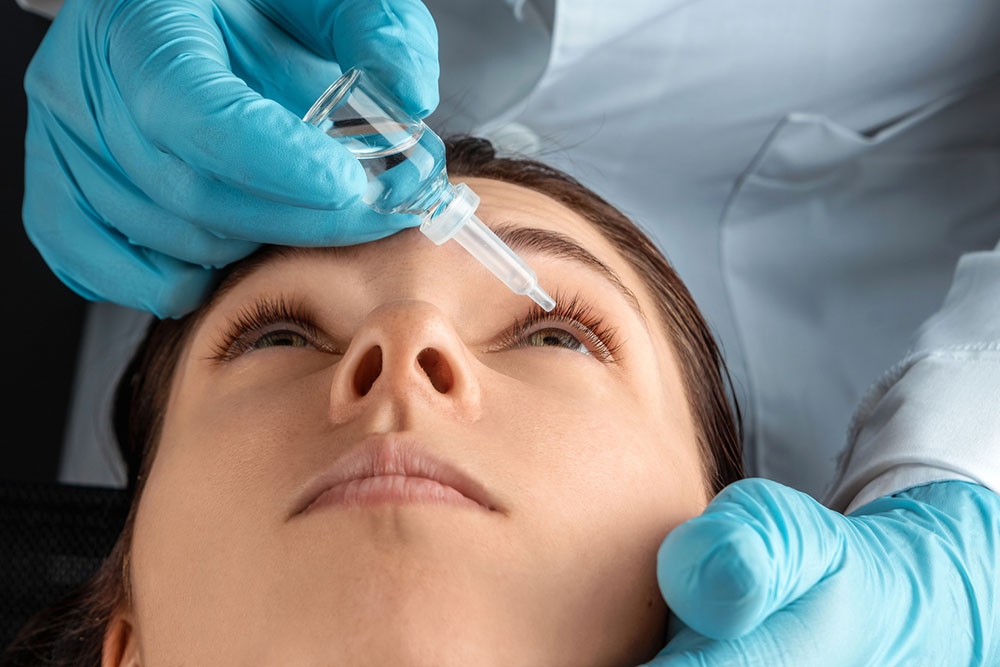Top 5 Tips to Maintain Eye Health

Taking care of the eyes is crucial as they are the primary sensory organ that helps interact with the world. To maintain good vision, consuming rich nutrients such as omega-3 fatty acids, lutein, zinc, and vitamins A, C, and E is essential. One must also take preventive measures like wearing sunglasses, using safety glasses while working in certain industries, or reducing screen time. Given below are some other ways to maintain optimal eye health.
1. Avoid wearing contacts to sleep
When one blinks, oxygen enters the eyes and keeps them moist even when awake. However, contact lenses significantly reduce the amount of oxygen and moisture the eyes can access as they fit over the eye’s surface. This problem is compounded when one sleeps. Without enough oxygen, the corneal cells, known as hypoxia, lose their ability to fight bacteria effectively.
According to the Centers for Disease Control (CDC), over 50% of contact lens wearers have reported sleeping with their lenses at least once. But even a single night of sleeping with contacts in can be dangerous. It is only recommended if the eye doctor has advised to wear contacts overnight. Studies have shown that sleeping with contact lenses increases the risk of developing an eye infection by six to eight times.
2. Use only clean contact lenses
Careful upkeep is necessary for contact lenses. Always wash hands after handling contacts and dry them with a lint-free cloth before handling them again. Additionally, the sterile solution that the optometrist advised must be applied.
Additionally, one should put eye drops because wearing contact lenses could dry up and irritate them. The pain of dry eyes brought on by wearing contacts can be relieved by eye drops. Choose eyedrops designed primarily for use with contact lenses. At the very least, one should apply the drops every day. Many people need to utilize computer displays more frequently when working on computers since they regularly bother the eyes.
Before storing the contact lenses in a case, make sure to replace the solution with an authorized contact lens solution. Do not store the lenses in water.
3. Ensure wearing the correct prescription
An improper prescription for glasses or contacts can cause a headache. Likely, one is not wearing the most precise prescription if one has eye strain, headaches, or discomfort.
The eyes may hurt when one wears the incorrect prescription for an extended period. The constant effort to make the eyes see more clearly will eventually wear down the eye muscles, resulting in headaches. Because of this, one may frequently get headaches as a warning that the eyesight prescription isn’t correctly diagnosed.
It’s essential to have the correct prescription for each pair of eyewear because contact lens/colored lens and eyeglass prescriptions differ. from person to person and cannot be shared.
4. Wear sunglasses for protection
Spending time outdoors in the sunshine is beneficial for our well-being. It helps the body produce vitamin D, which strengthens the immune system, regulates sleep patterns, and reduces the risk of depression. However, excessive exposure to the sun’s ultraviolet (UV) radiation can lead to eye problems such as sunburn and corneal irritation. Therefore, enjoying the sunshine in moderation and taking necessary precautions to protect the eyes is essential.
Sunglasses are not just a fashion statement but crucial for maintaining good eye health. The sun’s ultraviolet (UV) radiation can cause eye-threatening disorders such as cataracts, macular degeneration, and glaucoma.
Therefore, wearing sunglasses outside, whether hot and sunny or cloudy and overcast, is essential. It is recommended to wear sunglasses all year round to ensure the best eye protection. When selecting sunglasses, make sure they provide 100% UVA/B protection. Without UV protection, sunglasses can be harmful to the eyes. Over time, excessive sun exposure, even from the reflection of the sun’s rays off sand, water, or snow, can cause eye disorders that may affect vision, such as cataracts and macular degeneration.
5. Reduce screen time
Staring at the computer or mobile screen for a long time can cause strain to the eye. This is because when one keeps looking at the screen without rest, one may forget to blink their eyes. To reduce the strain thus caused, follow the 20-20-20 rule. This says to look away from the screen every 20 minutes to a distance of 20 feet away for 20 seconds.



